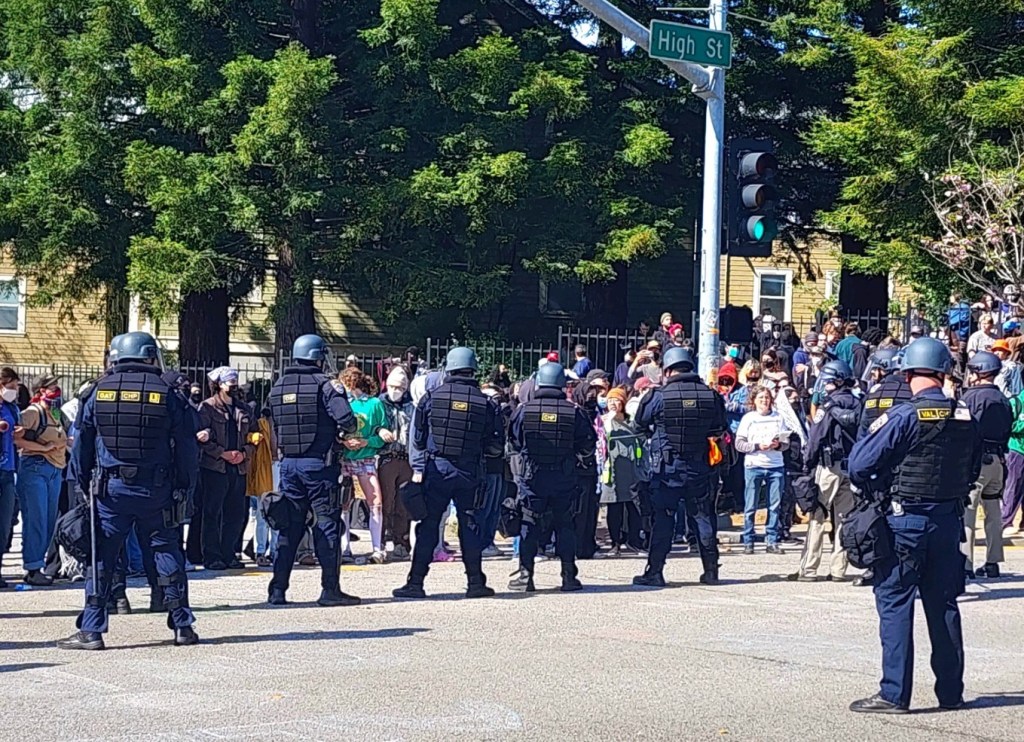
SANTA CRUZ — UC Santa Cruz police seized the cellphone of an undergraduate student plaintiff suing the university over two-week campus expulsions issued to more than 100 pro-Palestine protesters in May.
Attorneys for Laaila Irshad filed a court request to have the department’s search warrant thrown out and her phone returned to her, in addition to destruction of all seized information and unsealing of the affidavit supporting the warrant. Irshad, a third-year student and resident adviser, is claiming that the warrant, alleging a crime of vandalism, is overbroad and that the cellphone contains attorney-client privileged communications and attorney-work product, according to case filings.
RELATED: He read a poem before being sentenced for burning woman’s Israeli flag during East Bay protest, then exited court, where NYPD was waiting
The search warrant was issued Sept. 25, just two weeks after Irshad and several co-plaintiffs filed their suit against the university. Police served Irshad with the warrant Oct. 1, days after plaintiffs in the case filed a motion for a preliminary injunction seeking a freeze on further protest-related campus expulsions, according to the filing. Officers found Irshad while she stood outside her on-campus apartment, where she had led fellow students during a fire alarm, according to the filing.

















































